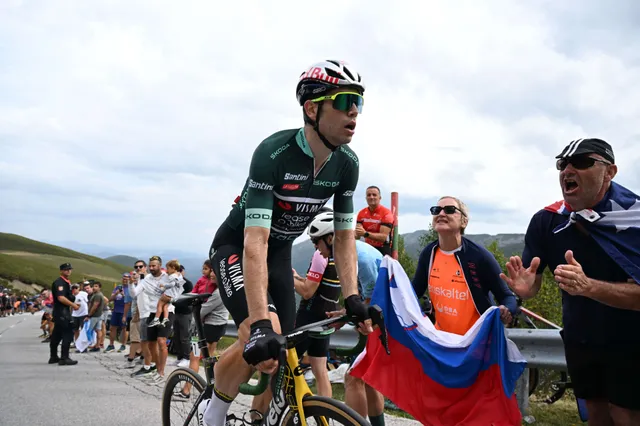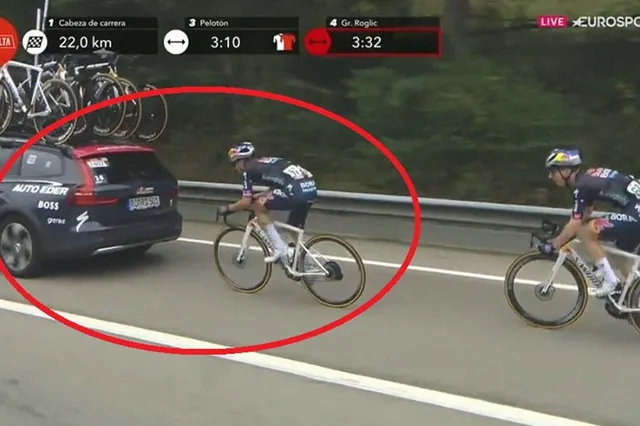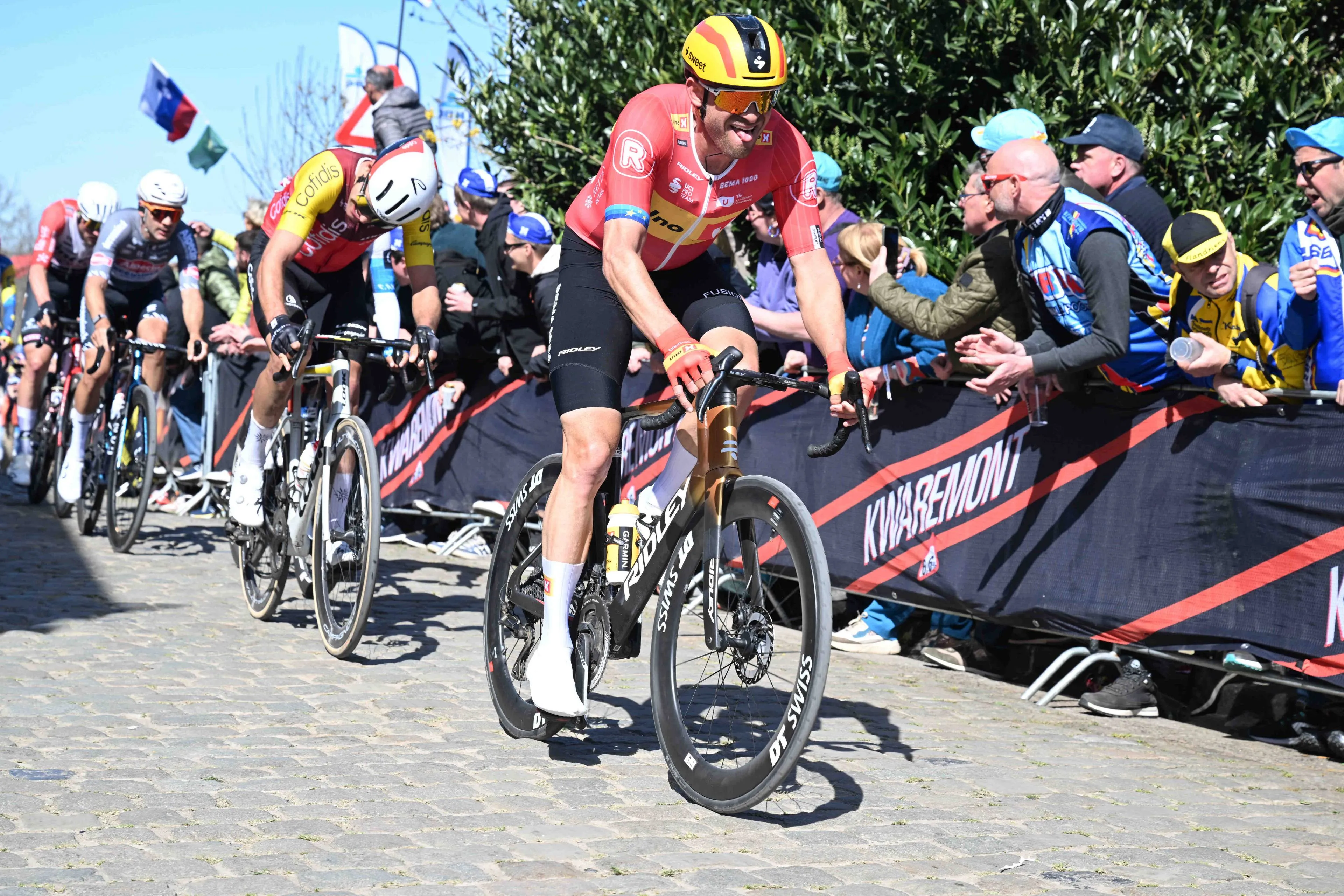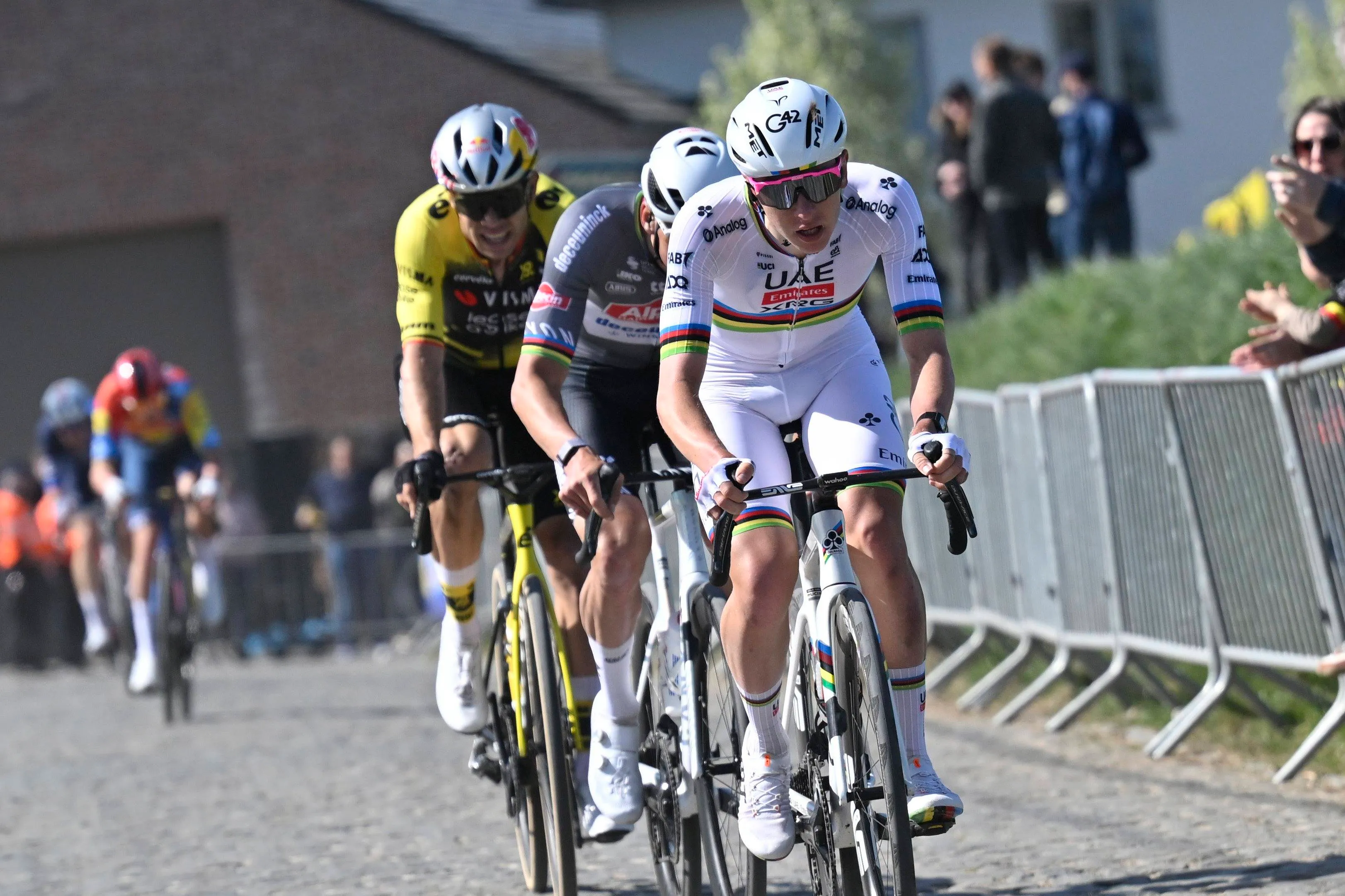Previewing Week 3 of La Vuelta a Espana: Expect the Unexpected
Cycling
Week 3 of La Vuelta a Espana 2024 promises drama and spectacular racing as the peloton faces an array of grueling mountain stages and a final-day time trial that could decide the red jersey.
As the race enters its final and most difficult week, we are set to witness decisive moments that could reshuffle the general classification (GC) and crown the next Vuelta champion. With riders such as Primož Roglič, Ben O'Connor, Enric Mas, and Wout van Aert all vying for personal glory, let’s dive into what’s to come in the pivotal week ahead.
Stage 16: Lagos de Covadonga
Week 3 kicks off with a beast of a stage as the peloton tackles Stage 16, a monumental 182km trek to the iconic Lagos de Covadonga in the Picos de Europa National Park. This stage is a climber’s paradise—or perhaps their worst nightmare—with over 4,000 meters of elevation gain, designed to shake up the GC. The stage will feature some of the most feared climbs in Spain, and the final ascent, the Lagos de Covadonga, is where all eyes will be focused.
The final climb is 12km long at a punishing 7% average gradient, but it's the last 8km, which average 9%, that will prove decisive. These final kilometres will be where the true GC contenders—particularly those with time to make up—launch their attacks. Primož Roglič, who currently sits 1:03 behind Ben O’Connor, will be eyeing this stage to reduce or even eliminate his deficit. Given Roglič’s history of excelling on steep climbs and his aggressive nature when sensing a rival’s weakness, don’t be surprised if he launches a ferocious attack here.
Roglič, however, faces added pressure after a 20-second penalty for excessive drafting on stage 15. This setback has likely only fuelled his desire to claim the red jersey. If Ben O'Connor shows any signs of faltering on the unforgiving slopes of Covadonga, Roglič will not hesitate to take advantage.
But Roglič isn’t the only rider with designs on this stage. Enric Mas, the Spanish hope and an exceptional climber, will also be a major player. The steep gradients in the final kilometres suit Mas’s explosive climbing style, and he is expected to attack from afar. After seeing teams like Movistar and Quick-Step burn their resources earlier in the race without much reward, Mas will likely avoid unnecessary energy expenditure until the key moments. Expect a duel between Mas and Roglič as they look to put pressure on O'Connor and each other.
Another critical factor in Stage 16 is the sudden shift in weather conditions. After enduring extreme 40-degree heat for much of the race, the peloton will now face much colder temperatures, particularly at the summit of the Lagos de Covadonga, where it could drop as low as 10 degrees. Such dramatic temperature changes can wreak havoc on a rider’s performance, particularly for those who struggle to adapt quickly. We might witness some surprises as riders respond differently to the cold—this will be a key stage in determining who can handle the rigors of the mountains and changing conditions.
Stage 17: The Road to Santander
After the brutality of Stage 16, Stage 17 offers a slightly less daunting challenge but still promises excitement. The peloton will tackle two Category 2 climbs—the Alto de la Estranguada and the Alto del Caracol—before the race heads towards the flat terrain that takes the riders to Santander. This stage, at least on paper, seems tailor-made for a breakaway to succeed.
Riders like Wout van Aert, who excels on rolling terrain and has the power to sustain long breakaways, will likely see Stage 17 as their opportunity to take a stage win. The category 2 climbs will string out the peloton, but the second half of the stage is mostly flat, making it difficult for the peloton to reel in a well-organized breakaway. With the Vuelta not finishing in Santander for 21 years, a historic stage victory could be on the cards.
In the context of the GC, this stage may not result in significant time gaps among the top contenders, but it’s essential for the teams looking to conserve energy ahead of the grueling stages still to come.
Stage 18: The Basque Battle – A Day of Relentless Climbing
Stage 18 is another challenging day for the riders as they traverse the rolling, hilly terrain of the Basque Country. The stage features the Category 2 Alto de Rivas de Tereso and the Category 1 Puerto Herrera, which comes with around 50km left before the finish in Maeztu-Parque Natural de Izki. This is classified as a medium mountain stage, but there’s almost no flat terrain throughout the day. It’s a relentless up-and-down affair, which means riders will struggle to find any physical or mental respite.
While the GC battle may not explode on this stage, it could see riders who are struggling after Stage 16 and 17 lose precious seconds. The likes of Roglič, O'Connor, and Mas will need to be cautious, as even a minor crack could have devastating consequences. For riders who are no longer in the GC fight, this is another day where breakaways could succeed.
Stage 19: Logroño to Alto del Moncalvillo
Stage 19 sees the peloton head to the Alto del Moncalvillo, where the stage will end with another brutal summit finish. This is a familiar climb for Roglič, who won on this very climb back in 2020. If Ben O’Connor still holds the red jersey at this point, Roglič will likely target this stage as a pivotal moment to either take the red jersey or further reduce his deficit.
The final climb of Alto del Moncalvillo is a punishing 8.6km ascent with an average gradient of 9%. This steep finish provides the perfect stage for Roglič to unleash his explosive climbing abilities. If he can replicate his 2020 form, Roglič will be extremely difficult to beat on this stage, especially if O'Connor is still holding onto the red jersey by a thread.
Stage 20: The Queen Stage – Villarcayo to Picon Blanco
Stage 20 is the Queen stage of the 2024 Vuelta, and with good reason. This 172km monster from Villarcayo to Picon Blanco includes seven categorized climbs and a brutal 4,700 meters of total elevation gain. The day ends with the fearsome ascent of Picon Blanco, a climb that averages 9%, and could be the final nail in the coffin for anyone struggling in the GC.
By this point, fatigue will have set in, and those still in contention for the red jersey will have to dig deeper than ever before. If Ben O’Connor somehow still holds the red jersey at this stage, he will have produced the ride of his life. For Roglič and Mas, this stage represents the last chance to make significant gains before the final time trial.
Stage 21: The Time Trial Showdown – 24.6km to Madrid Glory
Unlike many Grand Tours, La Vuelta 2024 will not end with a processional ride into Madrid. Instead, the riders will face a 24.6km individual time trial on the final day. If the GC battle is still close at this point, this stage could provide the ultimate twist in the tale.
Primož Roglič has both won and lost Grand Tours in final-day time trials, so if he hasn’t already taken the red jersey by this stage, expect him to pull out all the stops. Ben O'Connor, though a solid time trialist, will likely be at a disadvantage against Roglič, who has more experience and proven success in such scenarios. If O'Connor holds the lead heading into this stage, he will need to ride the time trial of his life to hold off Roglič’s charge.
Just in

Play for FREE! Fantasy Paris-Roubaix
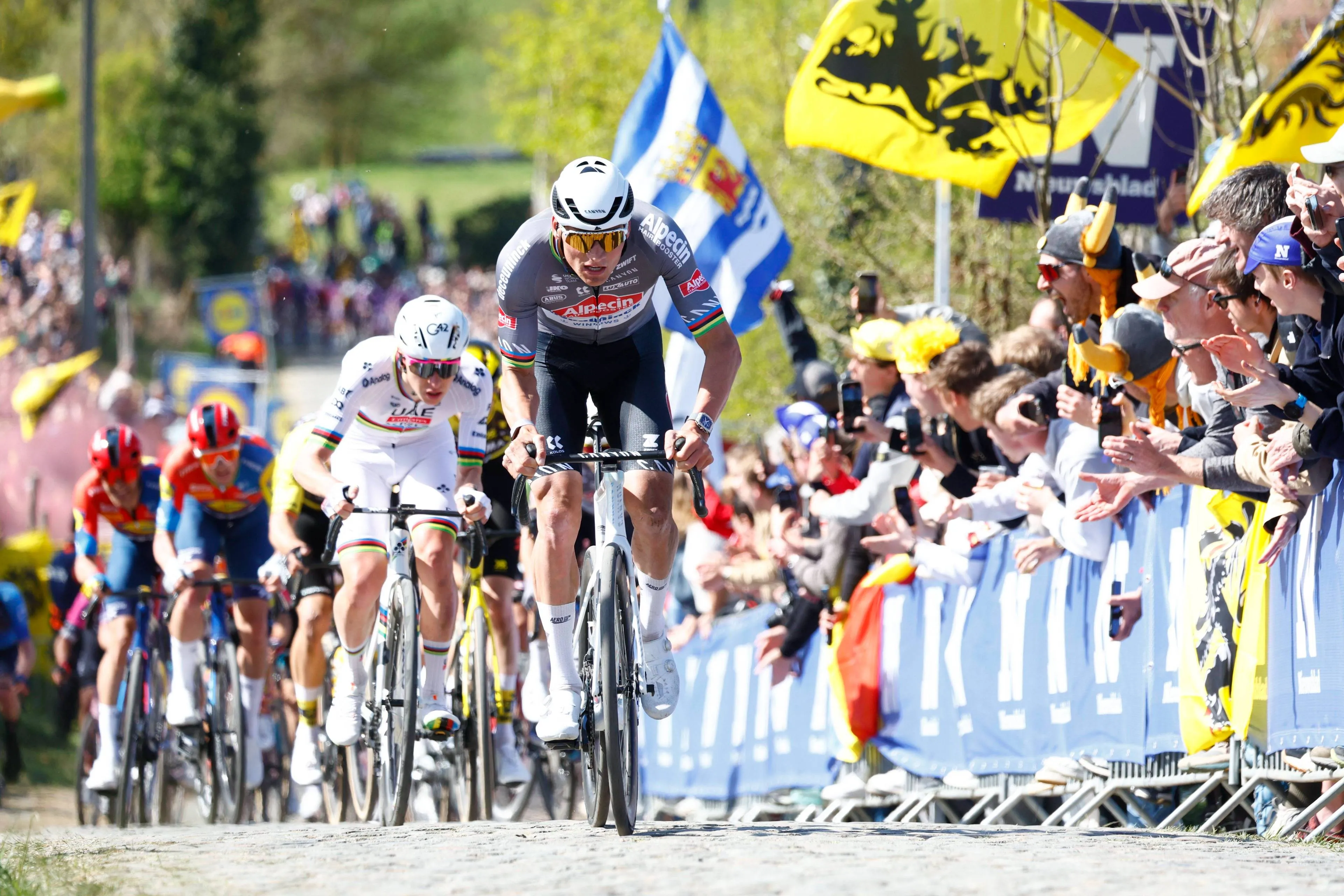
Subscribe to our Daily Newsletter today!
Popular news
Latest comments
- Itzulia? Are you sure it wasn’t more a boycott? Didn’t see many others going who crashed last year, out of the dozen of the crash only Cras I think.Mistermaumau16-04-2025
- MVDP also had a late bike change, so in theory a chance for Pogi to reel some time back. But by that point MvdP was strongermobk16-04-2025
- l don’t live in europe, i live in southern california. can someone explain why this stuff happens to van der poel and seemingly ONLY van der poel? i don’t need anyone to say it’s wrong or awful or whatever. i’m looking for a real cultural explanation of this phenomenon from someone who has a much deeper understanding of the forces at play than i do. thanks in advance.OCexile15-04-2025
- A MVDP victory certainly did not seem "inevitable" before the crash, with TP, MVDP and Philipsen leaving the peloton behind.. Pogi attacked to drop Philipsen, with Mathieu understandably unwilling to help, and he was surely attempting to put MVDP on the limit later by attacking again, until the crash derailed his efforts. Still the gap was manageable, and he was slowly trimming it down, but then a mechanical forced him to change bikes and that was the final straw. Kudos to TP for making it exciting, rather than just a walk in the park for MVDP.FredMan15-04-2025
- nice idea, but as analysis point out over and over, mvdp is more willing than anyone to lose a race in order to win it. why do you think smart riders like wout, ganna and mads end up doing his dirty work over and over? because he’s almost impossible to manipulate.OCexile15-04-2025
- I don’t really think Tadej would have felt comfortable relying on his team at PR more than his instinct.Mistermaumau15-04-2025
- Still think Mads was a little overweight this year.Mistermaumau15-04-2025
- As everyone discovered to their amazement at Amstel 2019 when they’d more or less written him off ;-)Mistermaumau15-04-2025
- Thanks :-)Mistermaumau15-04-2025
- You've got to take your pulls, but do them easier and shorter than he does. Just enough to keep him happy. And if Pog attacks, sit up and let MVDP close it down.acem8215-04-2025
